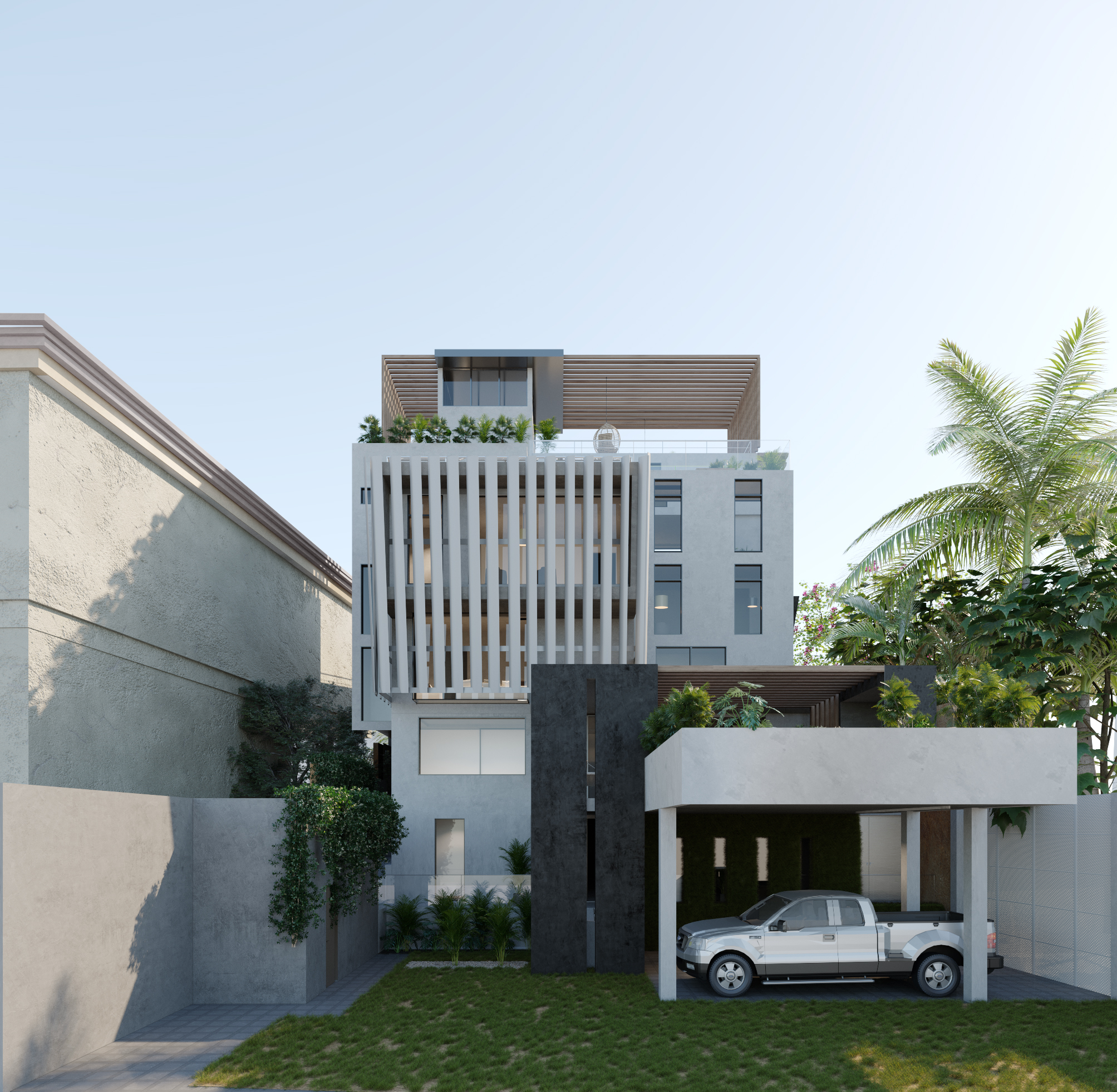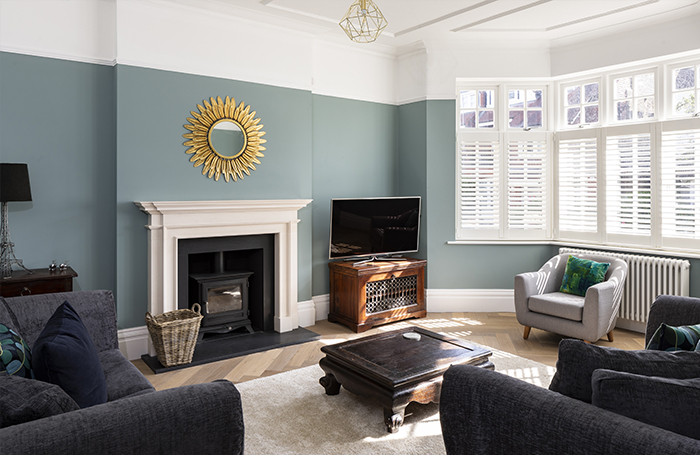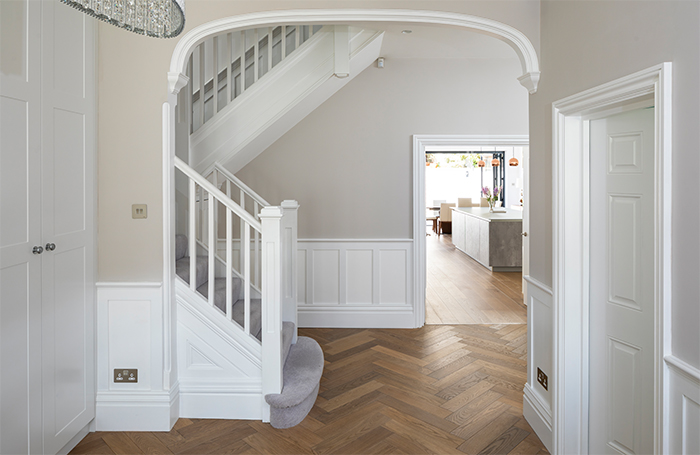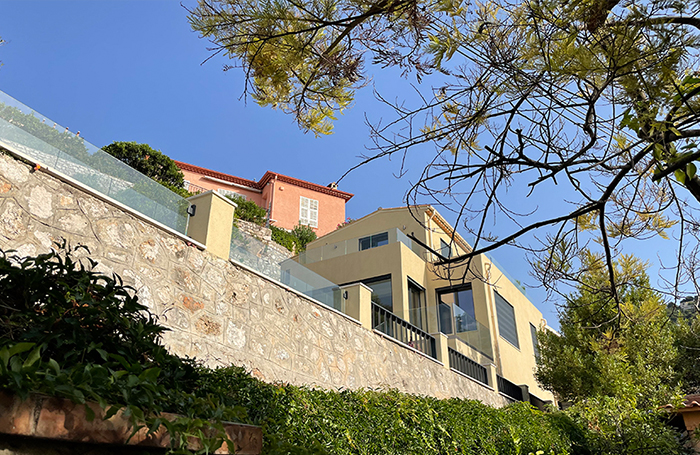Vorbild Architecture is a London based, and internationally working, RIBA Chartered Practice. Translated from German, vorbild means 'a model, an example of doing things the right way.' This forms the practice’s ethos. Their work spans across multiple sectors, from individual apartments and period houses to multi-unit new-builds in the UK and abroad.
The practice is registered with ARB and RIBA in the UK, CROA in the Provence-Alpes-Côte d’Azur region in France, and the AKNW Architektenkammer Nordrhein-Westfalen in Germany. In addition to that, VORBILD is a certified Interior Designer registered with the British Institute of Interior Designers (BIID).
The practice supports the new, diverse design talents by being a RIBA and BIID mentoring practice.

Your practice works internationally and is architecturally registered in three countries, how does your team work effectively across different regions?
This all happened gradually and naturally. To begin with our projects had mainly been located in London but our ambition was always to make use of London’s position as a major transport hub to enable growth in other areas. Most of the time I'm the person on the front line of the practice’s international operations - meeting clients, travelling to projects, aligning with various local bodies, suppliers and construction companies. I can then easily pass all the information, often in real time, to my colleagues thanks to a very robust, remote team-working system that we developed through the years. This allows me to access project files from any location, plus I can stay up to date with developments on our UK projects when I'm away. The second crucial aspect has been to have either a team-member based locally or to develop a partnership with someone in the area. They can help with doing project visits, researching and coordinating local suppliers, as well as dealing with any unexpected surprises that sometimes need to be addressed quickly. In the current COVID-times and with constant changes in travel regulations, these local connections are invaluable.
Have you experienced any difficulties working on projects internationally since Brexit and the pandemic and how have you overcome them?
In terms of working internationally, I feel that the pandemic has had a much bigger impact than Brexit. This mostly has been due to inability to travel abroad. For the last 18 months, I would grab the opportunity to visit international clients whenever travel restrictions were lifted, often at very short notice. Everybody has got used to working remotely and digital meetings are much more common and acceptable but nothing beats a face to face meeting. The pandemic has really highlighted the value of having a team-member based locally to the project as it helps immensely to keep moving a project forward and to navigate the local restrictions. We formed strong partnerships, especially in the south of France, where a locally based colleague of mine can take over when needed.

Tell us about the Vorbild team!
I am very lucky to have an amazing team around me. I hope that every architectural studio can say the same thing, but I really can’t praise everyone highly enough! Some of my colleagues have been with us since almost the very beginning when the practice was established 12 years ago.
The main languages the team speak are English Polish, German and French but we also have Spanish and Russian speakers. The more diverse the team the better, you never know where an enquiry can lead us to!
I am a German and Polish citizen and grew up in both countries and I'm a registered architect in Germany and France. I have also been awarded the Polish architectural qualifications and some of my colleagues are registered architects there.
Your newest project is in Africa. How did that come about and what about the project that you are most excited about?
It all started with an email over three years ago “Would you like to design a house in Africa?”
Within a few hours I was on a WhatsApp call with our now client, who explained what he was looking for. A few months later I was sent a ticket to Addis Ababa and met our client and his family on site.
It is fair to say that the design part itself is very easy compared to all of the other tasks we have to undertake - from finding, meeting and vetting local contractors, suppliers and architects to help with permissions, to finding out how to import products into the country, followed by exploring this vibrant city after many trips now. We are excited to finally start on site later this year!

What benefits have you experienced from becoming a RIBA Chartered Practice?
When we became RIBA Chartered Practice I finally felt like I’ve built a proper practice! It surely gave me, and all of us, more confidence to do things our way. RIBA is a very recognised institution and being a member gives a practice a lot of credibility.
RIBA has played a very important role in building the practice in the UK and internationally. The access to legal and insurance services has been vital. The Institute is often my first point of contact when needing some guidance, for example in the build up to Brexit and the confusion with registrations abroad. RIBA has been always very helpful, so much so that when given the opportunity a few years ago to mentor students, I was very happy to volunteer it. With regards to mentoring, I joined the BIID a few years ago, where I am now also a mentor as well as sitting on the panel interviewing new candidates. It is all about giving back.
Where do you look for inspiration? Does inspiration come from the countries you work in?
Inspiration is everywhere. Our team shares interesting articles or buildings that we have seen. It's like we create a mini team social media channel to inspire us!
When working on projects, from the start I have always encouraged my colleagues to do one of the design options completely by themselves, without any guidance, to allow them to spread their wings and to give that option a unique feel. Our designs have been influenced by out travels. Our team collaborates so everyone has the opportunity to add their life experiences to a project.

What do you think is the most important issue for architects to focus on right now, and what are you doing as a practice to tackle it?
Sustainability. We have made a commitment to sustainability by signing up to the RIBA 2030 Climate Challenge.
Sustainability is key on many levels of the design and build process. On the design level, it is a holistic approach to designing houses from the inside out, while incorporating specialist knowledge of biophilic design or Feng Shui. We aim to reuse materials as much as possible.
We started exploring more environmentally friendly building materials and finishes, focusing on their comparable price point so clients can understand the cost of making their new home more environmentally friendly. It is a long step by step process - I tend to refer to it as a marathon, not a sprint. Nothing will happen overnight, we all need to do our part, however small it might feel sometimes.
For more information visit Vorbild Architecture's Webpage, LinkedIn, Twitter and Instagram.









